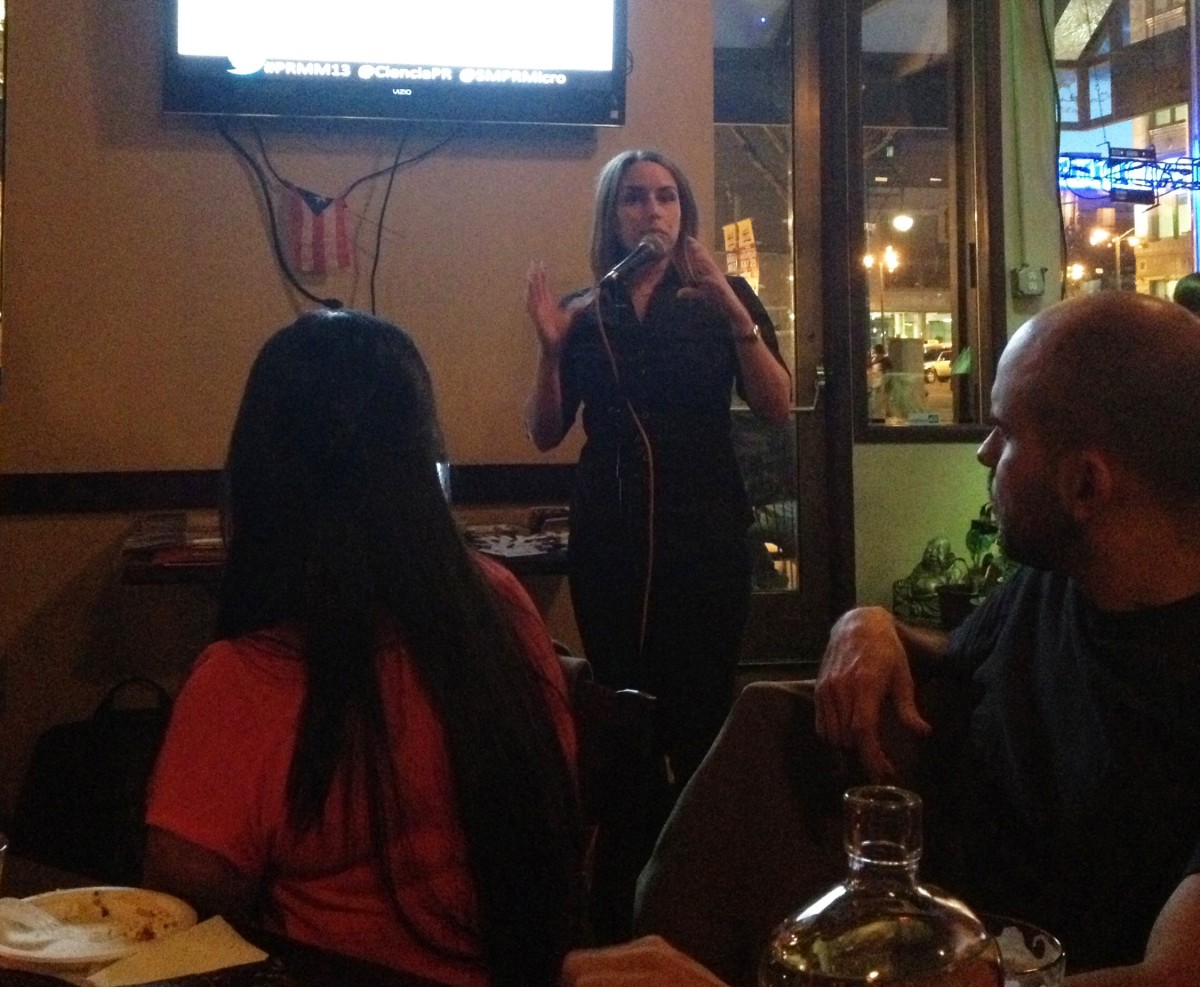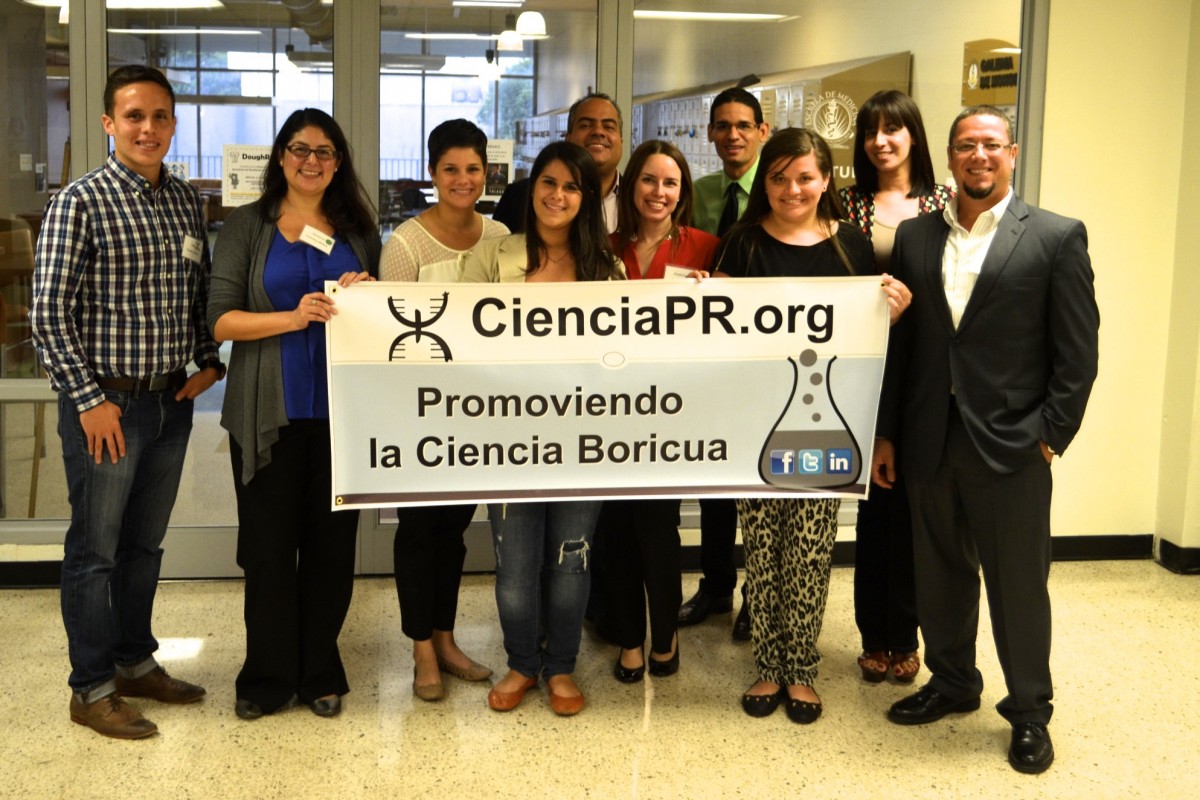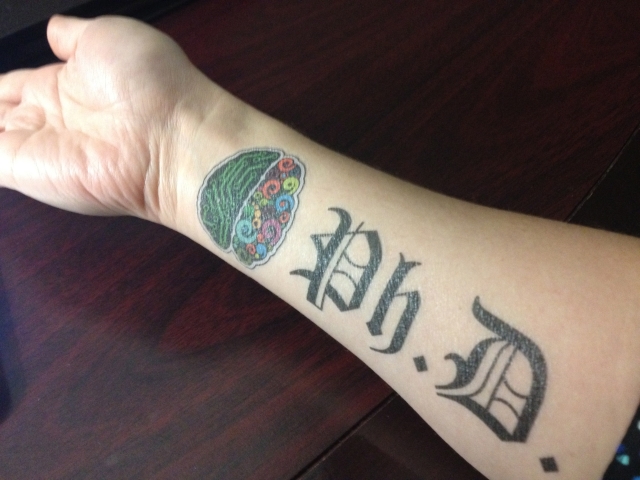Communicating science to a lay audience: Why a postdoc should care?
Submitted by Greetchen Díaz-Muñoz on
Postdoctoral researchers or postdocs, are those scientists who have completed a PhD and want to acquire more knowledge and skills in a specialized area of a discipline. In many countries, completing a postdoc has become almost a requirement before formally starting an academic career, especially in the biological sciences. Regardless of the type of institution they aspire to work, from a university focused on undergraduate education, to a university with an emphasis on research and graduate programs, it is expected that a competitive candidate has had some postdoctoral experience.
Although many postdocs end up as professors at a university, during the traditional postdoctoral training, rarely there is a component aimed to develop teaching skills. If during the doctoral experience, you did not have to offer a course or lab, then finding ways to improve your communication and education skills will be crucial. There are several ways in which one can acquire this essential experience. An alternative that few consider, but that can increase your professional development while gaining personal satisfaction, is to devote part of your time to communicate science to a lay audience.

Why is it important to communicate science to the general public? Undoubtedly, many people have no proper idea of what science is and the essential work done by scientists. Moreover, it is important for people to distinguish between true science (the one that uses scientific methods to assess evidence and generate responses) and pseudoscience (which entices the unwary with ancient supernatural beliefs or ideas without evidence). In simple words, knowledge empowers the community, it gives people the freedom to choose the causes that truly deserve to be supported, and gives each individual tools for critical thinking and reasoning to make decisions for their life. For these and many other reasons, it is critical that experts in scientific issues can communicate them to the public. And who is better for this important task than a postdoc, a young person, energetic, with update scientific knowledge and first hand experience in research.
You, my friend postdoc, you're probably already a good communicator when it comes to a professional or scientific audience. That's an advantage that not every scientist has. Imagine now that you are visiting your home or you are having a great time with some friends. How would you explain the importance of your scientific research so that your grandmother understands? Or a cousin? Or your best friend? If you find it difficult to explain complicated concepts to a level at which people with little experience or training in the area can understand and appreciate, it will be just as difficult to explain scientific ideas to your future students. The result can be catastrophic, both for yourself and for your students. This is where practice in the communication of science to the public can help.
As an example, here is my story. Although I began my interest in science diseemination very early, while doing my masters in biology at the University of Puerto Rico at Mayagüez, it was during my PhD when I became more involved in this type of practice. I joined as a volunteer to a nonprofit dedicated, among other things, to the promotion and communication of science. I started writing the text of a podcast, a shortie radio segment that highlights some scientific news. From there I went on to write and edit stories about scientists, their lives and their research. Today, during my time as a postdoctoral researcher, I have created resources for science communication, science contextualization, and scientific biography dissemination.

I have learned that to attract the interest of a broad audience, you have to explain concepts in a simple way and have to be creative. The practice of using simple vocabulary while scientifically correct has helped me to condense my thoughts on complicated issues and seek new ways to carry an appealing message that people remember. Being a science communicator to the general public helps me discern between the truly important details needed to tell the story and focus on describing the concepts that best explain it. Something very important is that to tell stories about science and scientists to a public audience, we must be “in their shoes” and be sensitive to their level of understanding. The development of this skill is an advantage to you as a professional that will certainly be very useful for communicating, regardless of the type of audience. They say that practice makes perfection, but although I definitely think there is always room to learn and improve over time, I have acquired the skill of writing and preparing presentations more effectively. This skill, in our busy lives as postdoctoral researchers, and future eductors, is as valuable as a treasure.
If you have not noticed, the skills I mention above are some of the most necessary skills that every educator should have. For several months , I participated in a science teaching fellowship program of the American Society for Microbiology. This project is aimed at preparing future science educators. As part of their series of webinars, I learned that to create a good curriculum I should identify the outcomes and goals that I want to get, choose educational methods more effectively, and finally, designing methods of assessment to measure the learning acquired by students. Unlike formal classroom education, informal education, which occurs when we communicate information about science and its importance, there are no methods of assessment. However, despite the difference whenever I make a written or an oral presentation for a lay audience, I stop to wonder: What is my goal? What is the message that I want them to keep? What is the best way to explain it? What resources and/or strategies will be best for my explanation?
Being a science communicator is a skill that tells a lot of you as a speaker, and is something you should definitely include in your career. In fact, agencies that provide research funding, aggressively promote the participation of scientists in disseminating science to the general public. Today there are several programs to help scientists and engineers to gain skills in scientific communication. For example, the Center for Public Engagement with Science and Technology of the American Association for the Advancement of Science, provides online resources and professional workshops to improve our skills in oral and written communication. In addition, the organization provides opportunities for early career scientists who want to have some experience of communication, such as the Mass Media Science and Engineering Fellows Program.
As a postdoc, communicating science to the general public gives you the opportunity to acquire professional skills that will serve you in your future, and gives you the opportunity to participate in the exchange of ideas between science and society, ideas that become more relevant every day. So if you decide to take advantage of the great opportunity to be a science communicator, don’t think it twice and do it!
You can follow Greetchen at twitter @GreetDiaz









